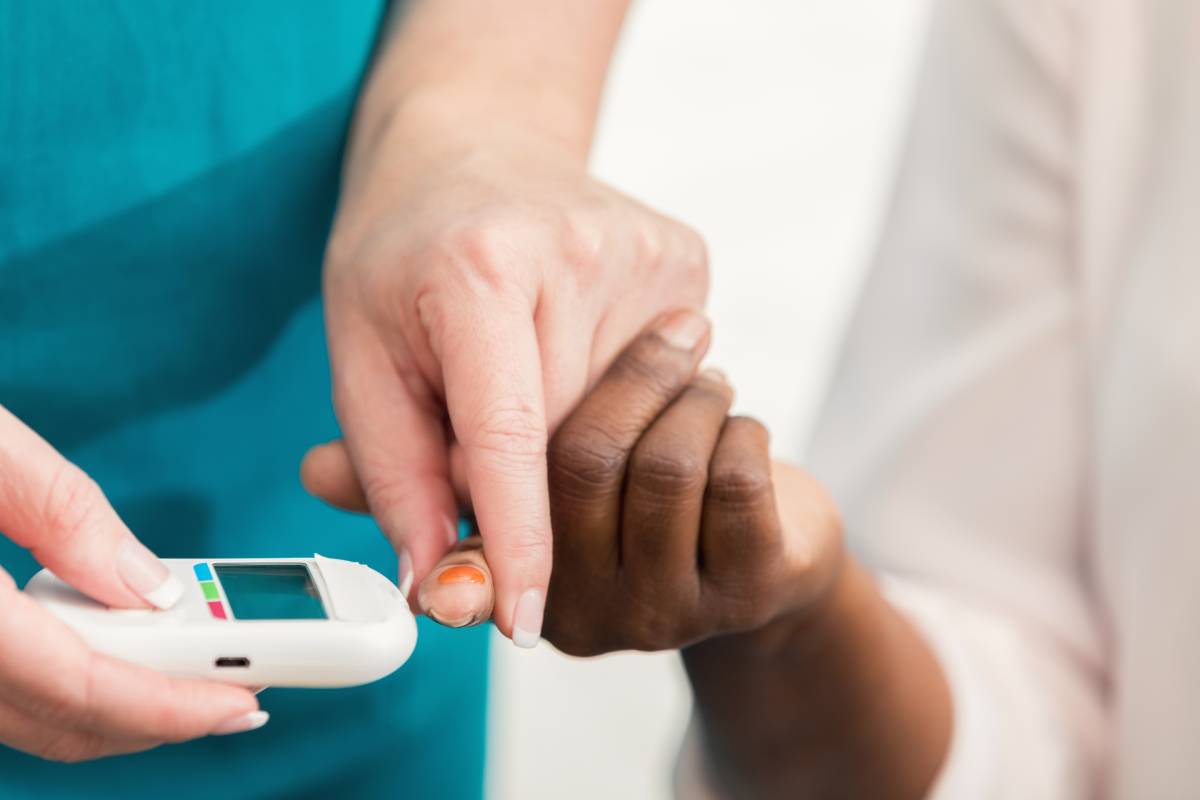Surgery, Blood Sugar, and Post-Surgery

When a patient undergoes surgery, the procedure itself and the effects of anesthesia place a certain degree of stress on the body which may result in elevated blood sugar (glucose) levels 1. This phenomenon of hyperglycemia tends to be associated with increased rates of mortality and morbidity in critically ill patients. In addition to the negative health effects, patients may also then experience longer hospital stays and increased costs 2. The early identification of at-risk patients is key to preventing negative outcomes 2. It is also essential, however, to better understand the underlying causes, manifestations, and post-surgery implications of blood sugar levels in surgery patients.
Diabetic individuals have a particularly high risk for blood sugar complications following a surgical procedure. However, individuals free of diabetes or with undiagnosed diabetes may also experience elevated post-surgical glucose levels, along with the clinical challenges they present.
A major complication that is associated with high blood sugar post-surgery is surgical site infection 3. Researchers have found postoperative hyperglycemia to be the most important risk factor for surgical site infection in general surgery and in colorectal cancer surgery patients. Serum glucose levels in excess of 110 milligrams per deciliter were indeed clearly linked to higher rates of post-surgical infection. However, prospective studies are needed in order to generate stronger conclusions. If hyperglycemia is confirmed in future prospective studies with better postoperative glucose data to represent an independent risk factor for postsurgical infection in surgery patients, this would indicate a modifiable variable to potentially reduce the incidence of postoperative infection.
Interestingly, a recent study highlighted the dangers of hyperglycemia in the case of vascular surgery in particular 4. On average, one in five patients undergoing vascular procedures were found to suffer from postoperative hyperglycemia. This postoperative hyperglycemia was associated with adverse events after lower extremity vascular procedures in patients both with and without diabetes. Consequences of elevated blood sugar post-surgery included infection, increased hospital use, and mortality. No difference was found, however, with respect to hospital readmission. The researchers concluded that postoperative glucose management may represent an important quality marker for improving outcomes following lower extremity vascular procedures.
Current recommendations for the perioperative management of glucose from national societies are varied, but most suggest that tight glucose control may not be beneficial, as mild hyperglycemia appears to be well-tolerated 5.
Indeed, although hyperglycemia is associated with worse outcomes, the treatment of hyperglycemia with insulin infusions has not yielded consistent benefits 5. Despite promising early results suggesting lower mortality and other advantages linked to the tight control of glucose levels, later investigations failed to identify any changes in mortality or other postsurgical consequences when hyperglycemia was aggressively treated with insulin.
In light of these conflicting data, it is unclear what the best protocol is to manage blood sugar in surgery patients and improve post-surgery outcomes. There is agreement, however, that hypoglycemia is an undesirable complication of intensive insulin therapy and should be avoided. In addition, the risk of increased glucose variability should be well-understood given the increased risk for worse outcomes.
Additional research remains to be carried out in order to best ensure that blood sugar is well controlled among surgical patients and maximize their health outcomes across a variety of clinical contexts.
References
1. High Blood Sugar Levels After Surgery. Available at: https://www.verywellhealth.com/after-surgery-infection-and-glucose-3970391. (Accessed: 14th April 2023)
2. Diabetes Complicates Postsurgical Recovery, but Study Suggests Method to Identify Those at Risk. Available at: https://www.ajmc.com/view/diabetes-complicates-postsurgical-recovery-but-study-suggests-method-to-identify-those-at-risk. (Accessed: 14th April 2023)
3. Ata, A., Lee, J., Bestle, S. L., Desemone, J. & Stain, S. C. Postoperative hyperglycemia and surgical site infection in general surgery patients. Arch. Surg. 145, 858–864 (2010). doi: 10.1001/archsurg.2010.179.
4. Vogel, T. R., Smith, J. B. & Kruse, R. L. The association of postoperative glycemic control and lower extremity procedure outcomes. J. Vasc. Surg. 66, 1123–1132 (2017). doi: 10.1016/j.jvs.2017.01.053.
5. Duncan, A. E. Hyperglycemia and Perioperative Glucose Management. Curr. Pharm. Des. 18, 6195 (2012). doi: 10.2174/138161212803832236.